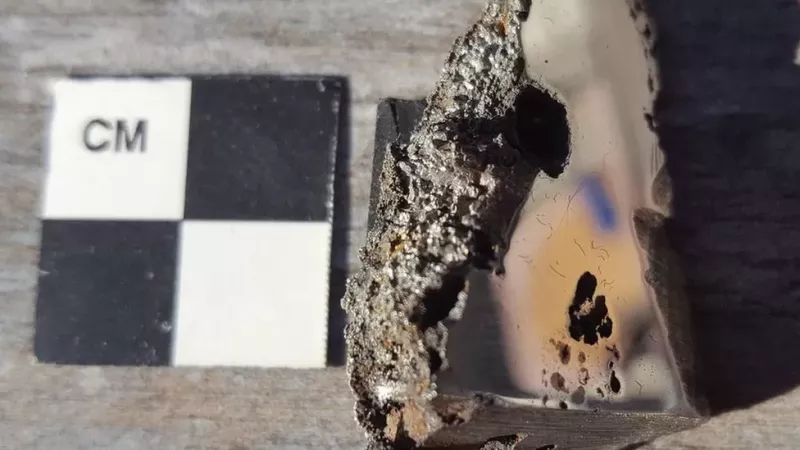A huge meteorite that fell to Earth contains two minerals never seen before on our planet, scientists say. Canadian researchers said the rock was found in rural Somalia two years ago, but locals believe it is much older. They call the stone Nightfall and say it is documented in poems, songs, and dances that stretch back five generations. It is used today to sharpen knives.
Read Also: This Drought-Resistant Grain Could Feed a Warmer World
The official names for the new minerals are elaliite and elkinstantonite. They were identified by scientists at the University of Alberta who looked at a 70g fragment from the 15-tonne meteorite, which is said to be the ninth-biggest to reach our planet and is about 90% iron and nickel. The name "elaliite" honors the fact that the meteorite was unearthed in the district of El Ali in Somalia, and "elkinstantonite" is named after Nasa expert Lindy Elkins-Tanton. "Lindy has done a lot of work on how the cores of planets form, how these iron-nickel cores form, and the closest analog we have are iron meteorites. So it made sense to name a mineral after her and recognize her contributions to science," said Prof Chris Herd who curates the University of Alberta's meteorite collection.
A third, as-yet-unidentified element is being analyzed by the university's researchers who now hope to get their hands on more of the meteorite - not only to see what else they might discover but also how it could be used on Earth. "Whenever there's a new material that's known, material scientists are interested too because of the potential uses in a wide range of things in society," Prof Herd said of the "exciting" research.




